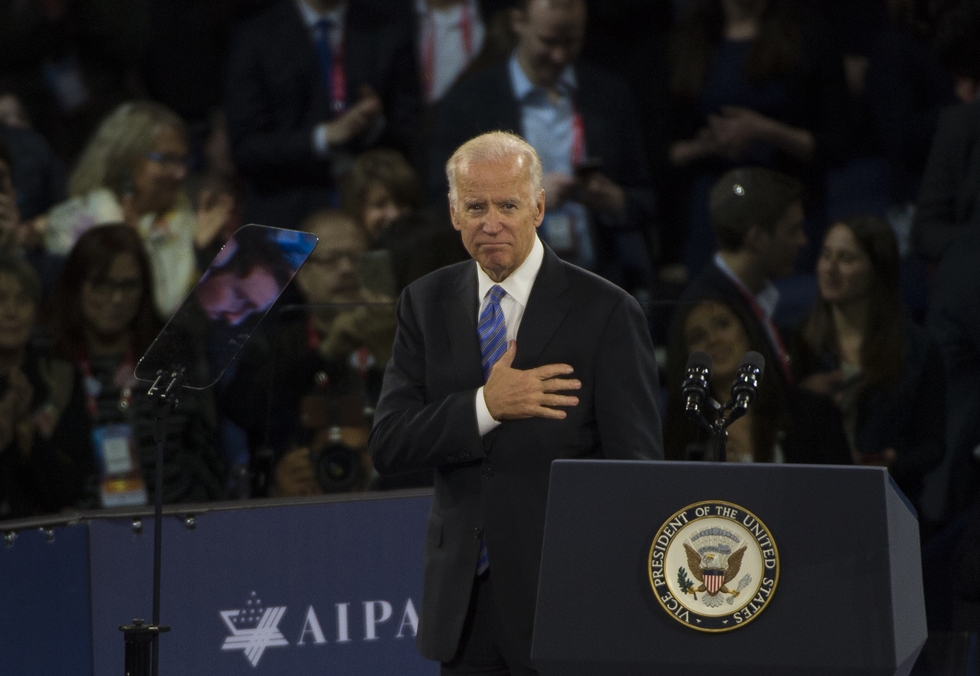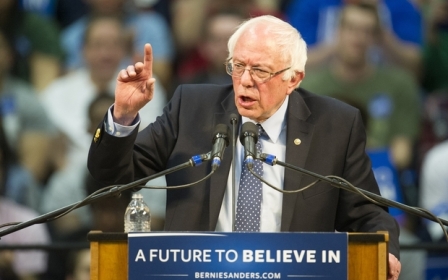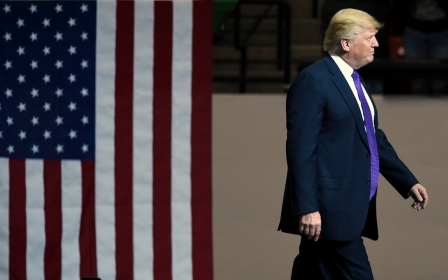Biden warns AIPAC that Israeli settlement building erodes chances for peace

Vice President Joe Biden warned on Sunday that Israel’s continued construction of settlements in the West Bank was eroding the prospects for peace in the region and said there was “no political will” from either Palestinians or Israelis to move forward with any proposals.
"Israel's government's steady and systematic process of expanding settlements, legalising outposts, seizing land, is eroding in my view the prospect of a two-state solution," Biden said in a speech to the American Israel Public Affairs Committee (AIPAC), a leading pro-Israel lobbying group.
He said that, unlike Israeli Prime Minister Benjamin Netanyahu, he didn’t believe that there could be any way to reconcile settlements with a two-state solution.
"Bibi (Netanyahu) thinks it can be accommodated, and I believe he believes it. I don't," Biden said.
He also warned that the region was moving towards a one-state solution which he said would be dangerous.
Israel’s relations with the US have been strained in recent years, primarily due to the completion of a landmark deal to restrict the nuclear capabilities of Iran, while at the same time lifting painful UN and Western sanctions, including on its lifeblood oil exports.
Biden told AIPAC that the United States is watching Iran "like a hawk" to ensure compliance with the landmark nuclear deal.
"The incentives are aligned for Iran to uphold its side of the deal. We're watching Iran like a hawk," Biden said.
"Under this deal, Iran would never be allowed to pursue nuclear weapons, never, never, never," he told the annual policy conference of pro-Israel lobby group.
"If Iran violates the deal, the United States will act," Biden pledged.
A key provision allows the sanctions to be restored or "snap-back" immediately if Iran is found in breach of the agreement.
Earlier in the day, Iran's Supreme Leader Ayatollah Ali Khamenei accused Washington of failing to respect the terms of the deal, in a speech marking Persian New Year.
The United States has lifted sanctions "on paper" under the deal which came into effect in January, "but they are using roundabout paths to prevent the Islamic republic from achieving its targets," Khamenei said.
Iran has denied wanting nuclear weapons, saying its nuclear activities were exclusively for peaceful purposes such as power generation.
Yet in Israel - where many fear being targeted by Tehran - there are still widespread concerns about security in the wake of the agreement.
On the issue of US military aid for Israel, Biden vowed forthcoming assistance would be "without a doubt the most generous security package in the history of the United States.
"Israel may not get everything it asks for, but it will get everything it needs," Biden said. "It's about making sure Israel will always exist, strong and capable, as the ultimate guarantor for the Jewish people around the world."
New MEE newsletter: Jerusalem Dispatch
Sign up to get the latest insights and analysis on Israel-Palestine, alongside Turkey Unpacked and other MEE newsletters
Middle East Eye delivers independent and unrivalled coverage and analysis of the Middle East, North Africa and beyond. To learn more about republishing this content and the associated fees, please fill out this form. More about MEE can be found here.




